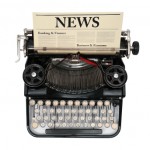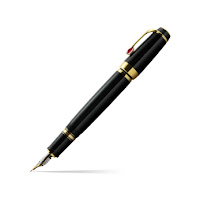Top tips from Mesmo Consultancy (and Associates) on how to save time and improve business and personal performance by ‘Taking Control of your Inbox’ and using proper business email etiquette.
Over the past few weeks three themes have dominated – the resurgence of writing to reduce email overload, email scandals and cyber crime.

Articles of note
Tags: cyber crime, pen and paper, Writing
This is a great time to re-look at you inbox and check your level of email overload. Don’t forget you can use our Email Overload on-line tool to check how you are doing.
Your inbox should be your work in progress and contain no more than 50 emails. Here are some tips to help you spring clean your inbox and plan a strategy for managing the email overload more effectively on your return.
Whether you are going on leave or staying in the office here are some quick way to clean out the inbox.
If you are taking some leave make sure you:
For more tips see earlier blogs. Also why not invest a couple of hours on one of our Brilliant Email Masterclasses.
Tags: Easter break, email overload
 Several companies have now adopted writing as a way to reduce email overload according to a recent article by Emma De Vita in the Financial Times. One company now uses notices board to post project updates rather than sending endless email chains.
Several companies have now adopted writing as a way to reduce email overload according to a recent article by Emma De Vita in the Financial Times. One company now uses notices board to post project updates rather than sending endless email chains.
From my own clients one uses whiteboards to post social and ephemeral notices such as ‘fire alarm tests’, ‘celebration cakes for tea’ etc. They have whiteboards placed strategically around the office and messages can vary depending on what specific groups are doing. One person said that an added benefit was how much you learn about what is going on in other parts of the department.
One business avoids endless email chains by writing their comments on documents and proposals. Only when all parties have commented does the senior project manager then read the proposal.
Other clients encourage people to rebuff requests to ‘send me an email’. Instead they tell the person making the request to take ownership and write down what is being asked of them.
We are seeing a great resurgence in traditional writing tools such as pen and paper. What novel ways such as these have you used to help reduce email overload?
Tags: alternatives to email, pen and paper, Reduce email overload

Think outside the inbox
Last week a client complained at being emailed by another colleague who sat just five desk away. How often does this happen to you? We have a love hate relationship with email: its fast and easy but not always the best communications channel. An over dependence on email at the expense of other channels is one of the primary causes of email overload. Yet how many of us make the effort to think outside the inbox before hitting send.
Very few judging by many of my client’s experiences. However, some leading organisations are being innovative and for example banning all internal emails and having no email days in an effort to both reduce email overload and improve communications. These range from high-tech companies to housing associations and architects.
My behaviour will influence your behaviour here are three ways to encourage others to think outside the inbox.
1. Provide an incentive for them to talk to you.
2. Use an alternative tool to provide information which people really need, for example the form for requesting leave, a sales update.
3. Implement email free times and office zones.
To reduce the email dependency (and even email addiction) above all else make sure you create the role model: next time you are about to hit send, get up and walk and talk to the person. Try responding to external email with a phone call. You might be pleasantly surprised at the extra information you pick up to help progress that important sale.
Tags: alternatives to email, email overload, No Email Day, No internal email, Walk before emailing
Email addiction is one of the underlying causes of email and information overload. A constant theme in workshops over the past few weeks, has been thinking outside the inbox and using alternatives to email, be it for either communications or keeping track of the to-do-list. Many and especially Generation Z onwards are now hardwired to their mobile devices. Indeed some may have even lost the ability to write with anything other than a keyboard.
Yet, traditional writing implements are having a huge resurgence. There are websites dedicated to note books and sales of fountain pens are booming. Some would argue that pen and paper are for dinosaurs, but would you call Sheryl Sandberg one? She admits to using a traditional notebook and pen to keep track of her to-to-list and make quick notes.

BomoArt memo book – always to hand
Pen and paper has many advantages over technology some of which have been expounded in previous blogs. From a personal perspective the top five benefits are:
When is the notebook mightier than email and how can it help reduce email addiction and overload. Here are five ways I use my trusty notebook and fountain pen rather than email.
Yes, I do use OneNote but mostly to save web-related materials, links to web sites and digital pictures. Call me a dinosaur if you like, but in my view, pen and paper is often mightier than email and digital devices.
Good fortune too is on my side as BomoArt, one of the leading producers of fine stationary is my sponsor. One of their Memo books is always to hand and a leather bound journal serves as my day book.
Do you ever use pen and paper in preference to email? If so do tell us how and for what purpose.
Tags: BomoArt, email addiction, Notebook, Pen and Notebook